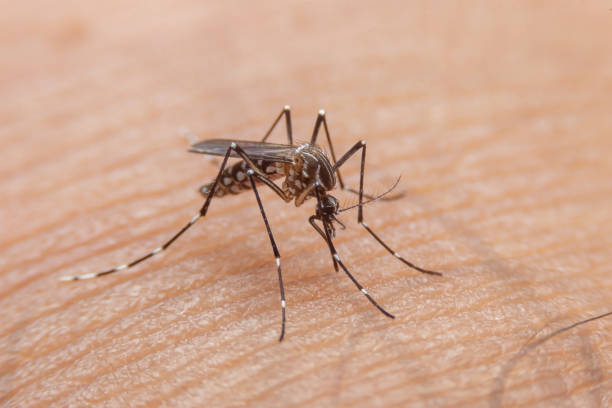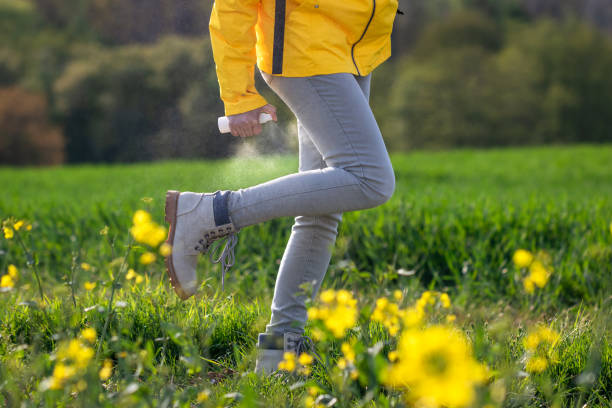

By Michelle Brown
Dengue, a common mosquito-borne viral illness often called “break-bone fever,” poses a significant global health threat, particularly to children and adolescents. This arbovirus infection, transmitted primarily by the daytime-active female Aedes aegypti mosquito, affects millions worldwide annually.
The World Health Organization (WHO) reported a dramatic surge in cases between 2000 and 2019, and a further spike in 2023, with over 5 million cases reported across 80 countries amidst record-breaking global temperatures. Worryingly, dengue is now appearing in regions previously unaffected, including parts of Europe and the United States.
Caused by one of four closely related dengue virus serotypes (DENV-1 to DENV-4), infection with one provides long-lasting immunity to that specific type but only short-term protection against others. Subsequent infection with a different serotype increases the risk of severe dengue. While most infections result in mild or no symptoms like fever, headache, and body aches, some individuals develop severe dengue requiring hospitalization. The WHO classifies dengue into categories based on warning signs and severity.
The ongoing spread of dengue is attributed to factors such as the expanding range of the mosquito vector, population growth, unplanned urbanization, climate change (leading to increased temperatures and rainfall), and modern travel. The recent COVID-19 pandemic may have also contributed by disrupting mosquito control efforts and potentially leading to underreporting of dengue cases.

Jamaica has experienced cyclical dengue outbreaks, with increased cases noted in 2007, 2010, 2012, 2019, and a major outbreak in 2023. During the 2023 outbreak, all four serotypes were circulating, with DENV-2 being the most prevalent. The Americas region reported 4.5 million cases and 2,300 deaths in 2023. As of April 4, 2025, Jamaica has recorded 121 suspected, probable, and confirmed cases with no deaths.
Currently, there is no specific treatment for dengue; care focuses on managing symptoms like pain with acetaminophen and ensuring adequate hydration.
Severe cases require prompt medical attention. Non-steroidal anti-inflammatory drugs should be avoided due to the risk of bleeding. A dengue vaccine, QDenga, is licensed in some countries but is currently recommended only for individuals aged 6 to 16 in high-transmission areas.

Prevention remains crucial and relies heavily on controlling mosquito populations, national surveillance, and public awareness. Individuals can protect themselves by wearing protective clothing, using mosquito nets and repellents, and installing window screens. Eliminating mosquito breeding sites by properly disposing of waste, emptying and cleaning water storage containers weekly, and applying insecticides to outdoor water sources are vital steps at the community level.
Given that arboviruses like dengue are endemic in the Caribbean and Latin America, the risk of severe dengue remains, particularly for younger populations.
The upcoming 2025 GVN Regional Meeting: Caribbean and Latin America Arbovirus Research and Education Symposium is a timely and critical initiative to foster collaboration and knowledge sharing in the fight against these infections, aiming to improve diagnosis, control, and prevention efforts in the region.
Michelle Brown MBBs, PhD
Lecturer and Consultant Microbiologist
Department of Microbiology
The University of the West Indies, Mona
ACKNOWLEDGMENT
As a Global Infectious Diseases Scholar, Michelle Brown received mentored research training in the development of this manuscript. This training was supported in part by the University at Buffalo Clinical and Translational Science Institute award UL1TR001412 and the Global Infectious Diseases Research Training Program award D43TW010919. The content is solely the responsibility of the author and does not necessarily represent the official views of the Clinical and Translational Science Institute or the National Institutes of Health.







Comments